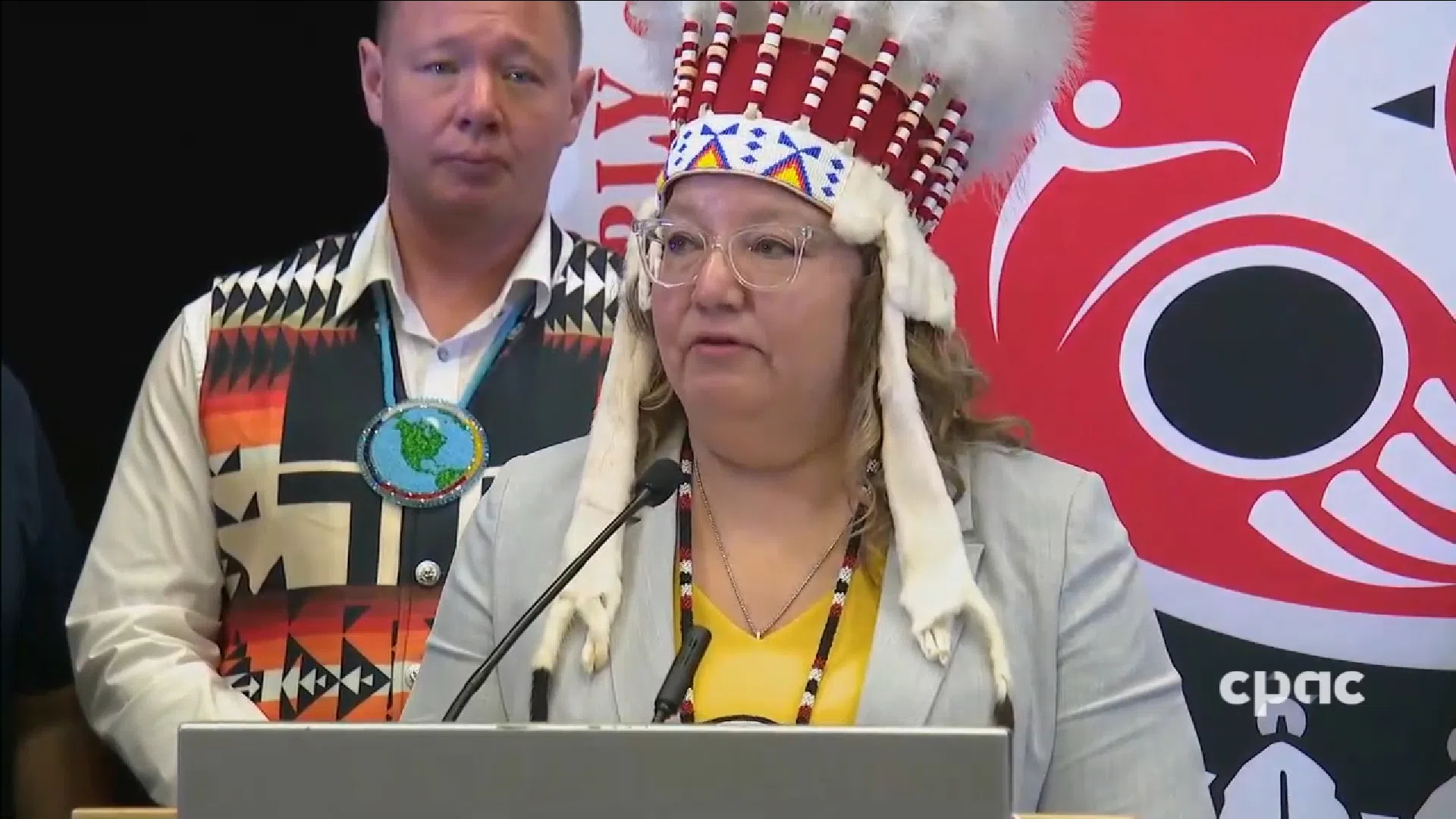It is being described as a historic and groundbreaking milestone for First Nations children and their families.
Ottawa has agreed to commit $47.8 billion over 10 years to reform First Nations child and family services.
The settlement agreement was announced during the Assembly of First Nations’ annual general meeting on Wednesday.
National Chief Cindy Woodhouse Nepinak said this deal will lead to improved support for First Nations children and their families.
“It is hard to think of this as a celebration because everything that has happened so far is so, so sad,” said Woodhouse Nepinak.
“Since the beginning of the Sixties Scoop, First Nations children have faced discrimination in Canada’s child welfare system due to longstanding discriminatory policies and attitudes toward First Nations people. We are moving toward prevention, rather than apprehension.
“In 20 years from now, I hope that many of our families are back together again, sooner than that, but at the same time we fix this system so it quits hurting our First Nations families.”
The agreement is on top of a landmark $23-billion settlement approved by the Federal Court in October for 300,000 First Nations children and their families.
The settlement is the largest in Canadian history and was based on a human rights tribunal ruling which found the federal government discriminated against First Nation children and their families.
Indigenous Services Minister Patty Hajdu said Thursday’s agreement will put an end to “discriminatory” and “systemically oppressive policies.”
“This was a tool that was used to destroy the strength of First Nations peoples so that people could not fight for their own rights to exist in a way that they had since time immemorial,” said Hajdu.
“Today’s agreement is about a change to all of that. It’s about restoring power and control to communities and families so that no child ever again will grow up without being surrounded by love and culture and language, knowing who they are.
“It’s also a day that Canada moves from compensating for harm to investing in prevention. It means that we can see an end to the days where families are ripped apart because they don’t have a safe place to sleep, because they can’t afford the food to feed their children, because they don’t have the supports they need.”

